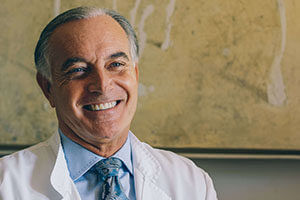FROM DATA TO PRACTICE: YOUR FASTING COMPASS – OCTOBER 2025
This Month in Fasting Research:
What Changed Our Perspective
Science often moves quietly. Some results don’t make headlines – yet they change how we see our bodies. Recent studies offer signals that sharpen our understanding of fasting.
1) When lifestyle supports fertility
Women preparing for IVF – a form of assisted reproduction in which eggs are fertilized in the lab and transferred to the uterus – followed a very low-calorie ketogenic diet for three months in a small study. Most lost weight while maintaining muscle mass.
Surprisingly, some conceived spontaneously before the procedure; more than half of the others became pregnant afterward. The idea: when metabolism stabilizes, doors that once seemed closed may open – including those related to fertility. At our clinics, we often hear similar stories after fasting programs. These are not definitive proofs yet, but they are strong signals –
and a clear path for our future research.
2) Gut bacteria with hormonal effects
Researchers identified gut bacteria that produce molecules resembling GLP-1 –the hormone targeted by modern weight-loss drugs. In mouse models, these natural compounds reduced body fat and improved blood sugar. A simple idea follows: part of tomorrow’s therapies might come from within – from our own microbiome, not an injection.
3) Fasting against inflammation: The role of spermidine
During fasting, the body’s own production of spermidine increases. In a mouse model of gout-like inflammation, fasting reduced swelling by calming a central “switch” of inflammation; administering spermidine produced a similar effect. Yes, spermidine exists as a supplement – but fasting activates it as part of a broader, finely tuned physiological response. In a scientific paper, we showed that Buchinger fasting boosts spermidine production and, via autophagy, triggers cellular regeneration.
4) The liver thrives on rhythm, not surprise
Another study showed: when fasting follows a reliable rhythm, the liver adapts smoothly and stays healthy (see study). If, however, food is withdrawn unpredictably, the liver rapidly stores fat. The takeaway: organs tolerate planned fasting better than random interruptions of eating. Preparation and the transition into the fasting period are crucial. You’ll find guidance in our YouTube content.
5) Medications work better on a rhythm
In patients taking the new medication tirzepatide, improvements in liver fat doubled when a ketogenic diet was followed in parallel – compared with calorie reduction alone (see study). This isn’t either – or, but both – and: medicine and lifestyle achieve their greatest impact together. At the Buchinger Wilhelmi Clinics, we take anti-obesity medications seriously. And yes – our medical teams are working on how therapeutic fasting can help patients eventually and responsibly discontinue these drugs, in favor of sustainable weight regulation without medication.
What our research team is working on
The international findings resonate with our clinical observations. Within our FastForward program, we support patients not only through the fasting phase but also in their return to everyday life.
In addition, in October we launched a women’s health survey to assess how fasting works across life stages – from regular cycles through perimenopause to postmenopause. We’re collecting data on cycle-related symptoms, PMS, sleep, hot flashes, and mood – before and after fasting.

Why? Our medical teams have observed for years that many women report eased menopausal symptoms; cycles stabilize, PMS and irritability decline. These are clinical signals – not yet publications, but clear traces. And quietly in the background, a further question arises: might fasting, in some cases, reopen the possibility of fertility?
What this means for you
- Chosen, not improvised: A planned fasting cycle works more deeply than spontaneous food abstinence.
- Rhythm nourishes the microbiome: Pay attention to your eating window, fiber, fermented foods – and to regularity.
- More than a supplement: Supplements can mimic single effects; fasting coordinates many processes at once. Choose the real thing.
- Medicine + Lifestyle: Medications can open doors – routines and behavior change keep them open.
- Timing, Discipline, Routine: Health often arises less from “more” than from the right timing and reliable routines.
Our scientific team continuously reviews new research worldwide – with one goal: to remain at the forefront of clinical innovation in fasting and metabolism and to keep refining our medical practice. For care that is evidence-based—and personally tangible.
Dr. Robin Mesnage is Scientific Director at the Buchinger Wilhelmi Clinics, where he documents the effects of fasting through clinical studies while integrating modern diagnostics into therapy. As a Research Fellow at King’s College London, he investigates the role of the gut microbiome in the benefits of plant-based nutrition. He advises authorities – including the French government and occasionally the European Parliament – on regulating chemical pollutants and is a sought-after speaker. With 100+ publications and over 8,000 citations, he ranks among the top 1% most-cited researchers in environment and health.










